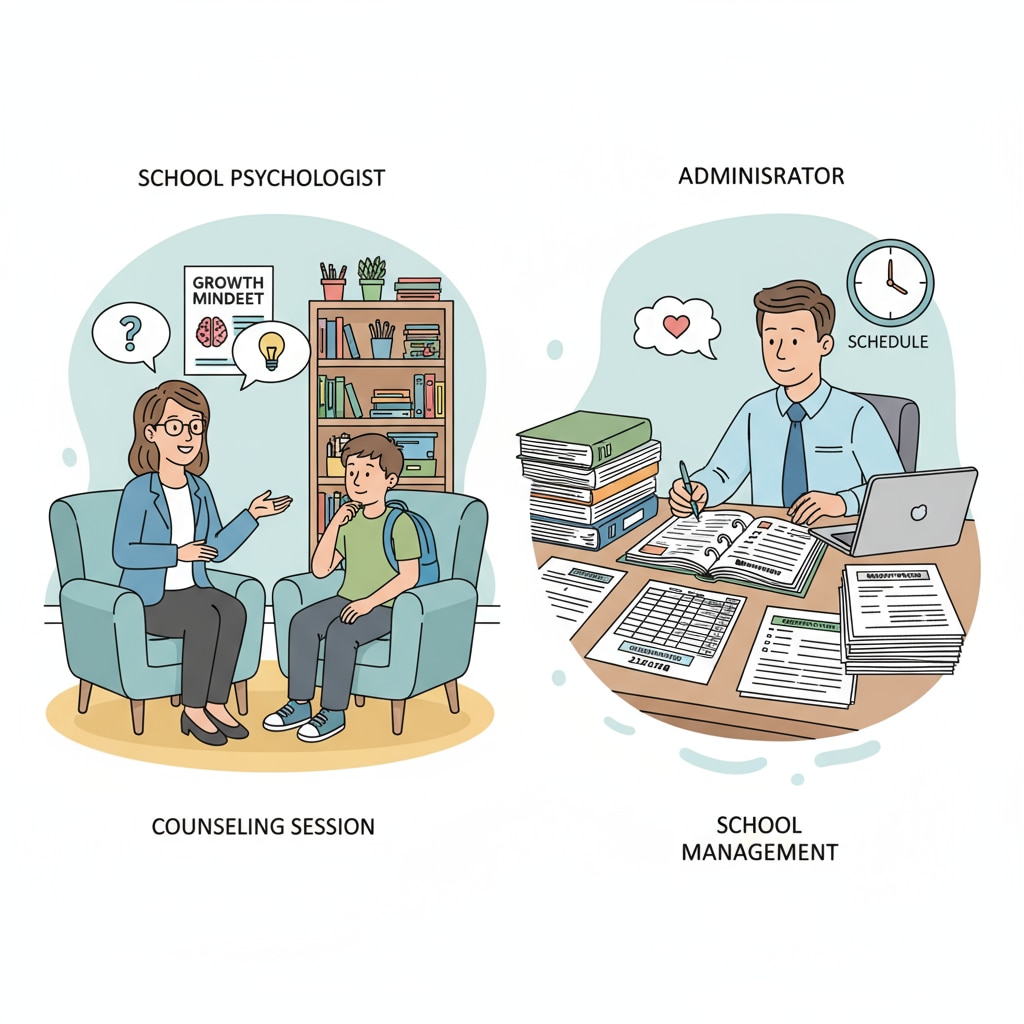Career choices in education often present a crossroads, especially when deciding between school psychology and educational administration. For educators with a non-education bachelor’s degree and teaching assistant experience, understanding these two distinct paths is essential for a fulfilling career. Let’s explore the characteristics, requirements, and prospects of each field.

Understanding School Psychology
School psychology is a specialized field that focuses on the mental health, behavior, and academic success of students. School psychologists play a vital role in schools, providing support to students who may be facing various challenges. They conduct assessments, develop intervention plans, and collaborate with teachers and parents. According to Wikipedia, school psychologists are trained to address a wide range of issues, from learning disabilities to emotional and behavioral problems.
To enter this field, individuals typically need a graduate degree in school psychology. This includes coursework in psychology, assessment, counseling, and educational psychology. In addition, practical experience through internships and supervised fieldwork is required. School psychologists must have strong interpersonal skills, as they work closely with students, parents, and school staff. They also need to be able to analyze data and develop effective intervention strategies.

The Realm of Educational Administration
Educational administration, on the other hand, involves managing the operations and resources of educational institutions. Administrators are responsible for making decisions that affect the overall functioning of schools, from curriculum development to budget management. They work to create a positive learning environment and ensure that educational goals are met. As stated on Britannica, educational administrators play a crucial role in shaping the direction of schools.
Most educational administration positions require a master’s degree in educational administration or a related field. Skills such as leadership, communication, problem-solving, and organizational management are highly valued. Administrators need to be able to handle multiple tasks simultaneously and make decisions in a timely manner. They also need to have a good understanding of educational policies and regulations.
Making the decision between school psychology and educational administration depends on your interests, skills, and long-term career goals. If you are passionate about helping students on an individual level and have a strong background in psychology, school psychology may be the right path for you. However, if you enjoy leading and managing, and have a knack for problem-solving and decision-making, educational administration could be a better fit.
Readability guidance: By clearly presenting the details of each field and using transition words like “however” and “on the other hand”, we aim to make this article easy to read. Each section provides key information in short paragraphs, and external links offer further in-depth knowledge.


